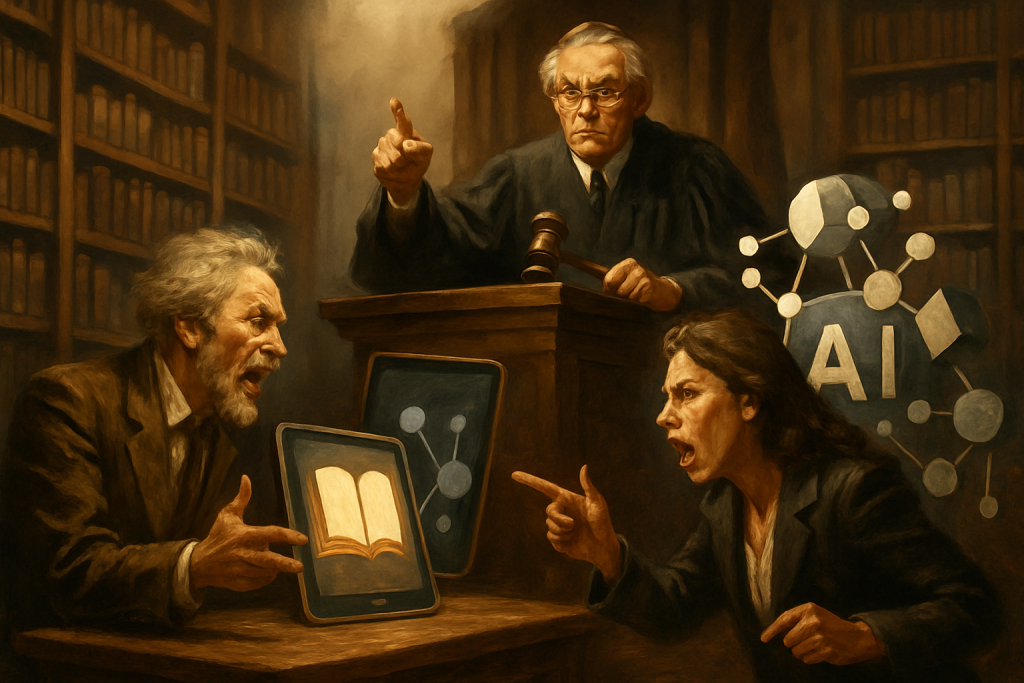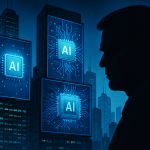The year is 2025. Self-driving cars are (mostly) keeping us alive, we’re arguing about the metaverse’s relevance again, and artificial intelligence has finally hit its awkward teenage years- full of potential, but also prone to making questionable choices. Speaking of questionable choices, Anthropic, the AI powerhouse behind the increasingly popular Claude assistant, just reached a settlement that’s sending ripples through the entire industry. They were facing a copyright infringement lawsuit filed by a formidable group of authors, and let’s just say, the plot thickened faster than a Dan Brown novel.
At the heart of the matter? The age-old question: who owns the data that trains these digital brains? We’re talking about potentially millions of copyrighted books allegedly ingested by Claude during its formative learning stages. Imagine Claude, less a sophisticated AI assistant, and more a ravenous bookworm, devouring literature at an alarming rate. Sounds a little like the robots in Fahrenheit 451, doesn’t it? Only instead of burning books, they’re… well, learning from them, perhaps a little too enthusiastically.
The lawsuit alleged that Anthropic, in its quest to build a smarter AI, had essentially raided the literary world’s library without so much as a “by your leave.” The authors argued that their copyrighted works were being used to train Claude without proper authorization, a move that could significantly impact their ability to profit from their creations. Think of it as someone building a skyscraper on land they didn’t own- eventually, someone’s going to notice and send a strongly worded legal letter.
Now, here’s where things get legally knotty. Back in June, a judge handed down a split decision. On one hand, the court acknowledged that some of Anthropic’s actions might fall under the hallowed doctrine of fair use- the legal principle that allows limited use of copyrighted material for purposes like criticism, commentary, news reporting, teaching, scholarship, or research. Think of it like sampling in music- a little bit can be okay, but outright plagiarism is a no-no.
But on the other hand, the judge also ruled that Anthropic had potentially crossed a line by storing these books in a centralized digital library. The court saw this as a violation of copyright law, a decision that could have exposed the company to colossal financial damages- we’re talking billions, maybe even trillions of dollars. That’s enough to make even the most confident CEO sweat. Imagine the courtroom scene: lawyers brandishing virtual books like weapons, AI experts arguing about neural networks, and the judge trying to make sense of it all while simultaneously ordering a new e-reader.
Facing a trial in December and the very real threat of financial ruin, Anthropic blinked. They opted for a settlement, the details of which remain shrouded in secrecy pending court approval. It’s like the ending of a classic whodunit- the culprit is revealed, but the exact motive is left tantalizingly ambiguous.
So, what does this all mean for the AI industry? Is this the beginning of the robot uprising, or just a speed bump on the road to artificial general intelligence? Well, legal experts are cautiously optimistic. They suggest that this case, while significant, is unique and may not set a direct precedent for other ongoing lawsuits involving AI giants like OpenAI, Microsoft, and Meta. It’s more like a one-off episode than a season finale.
However, the settlement does underscore the complex and evolving nature of copyright law in the age of AI. Anthropic’s partial victory on the fair-use front offered a glimmer of hope, but the potential liabilities associated with storing copyrighted works ultimately proved too risky. It’s a classic risk-reward scenario, and in this case, the risk outweighed the potential reward.
The implications for the AI industry are clear: companies need to tread carefully when it comes to data acquisition and storage. They need to develop robust processes for obtaining permissions and managing copyrighted material. It’s no longer enough to simply scrape the internet and hope for the best. We need clearer legal frameworks and guidelines to navigate this uncharted territory. Think of it as building a new highway- you need clear rules of the road to avoid a multi-car pileup.
This situation raises a host of ethical and philosophical questions. How do we balance the need to foster innovation with the rights of creators? Should AI models be allowed to learn from copyrighted works at all? And if so, under what conditions? These are not easy questions, and there are no easy answers. But they are questions that we, as a society, need to grapple with as AI continues to evolve.
From a financial and economic perspective, this settlement could have a chilling effect on AI development. Companies may become more hesitant to invest in AI models that rely on large datasets of copyrighted material. This could slow down the pace of innovation and lead to a more cautious approach to AI development. On the other hand, it could also spur the development of new and more ethical approaches to AI training, such as using synthetic data or focusing on open-source datasets. It’s a bit like the Wild West- there’s risk involved, but also the potential for great reward.
Ultimately, Anthropic’s settlement is a pivotal moment in the ongoing debate about AI and copyright. It’s a reminder that the law is still catching up to technology, and that the rules of the game are still being written. It’s a story that’s far from over, and one that will continue to shape the future of AI for years to come. Stay tuned, folks, because this is one plot twist you won’t want to miss.
Discover more from Just Buzz
Subscribe to get the latest posts sent to your email.


